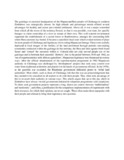Please use this identifier to cite or link to this item:
https://cris.library.msu.ac.zw//handle/11408/1442| Title: | The Chishanga waters have their owners': water politics and development in Southern Zimbabwe | Authors: | Mazarire, Gerald C. | Keywords: | Chishanga Waters, Water politics, Development, Southern Zimbabwe | Issue Date: | 2008 | Publisher: | Routledge | Series/Report no.: | Journal of Southern African Studies;Vol. 34, No. 4: 757 - 784 | Abstract: | The gadzingo or ancestral headquarters of the Mapanzure/Hera people of Chishanga in southern Zimbabwe was strategically chosen. Its high altitude and picturesque terrain offered several advantages for healthy and secure pre-colonial settlement. Above all, it was a major watershed from which all the rivers of the territory flowed, so that it was possible, over time, for specific lineages to claim ownership of a river or stream of their own. This well-watered environment supported the establishment of a sacred forest or Rambotemwa, amongst the surrounding hills where Hera ancestors lay buried. It became a sanctified ritual zone which evoked notions of place for most people of Chishanga and legitimacy for its ruling Mapanzure lineage. These were usefully deployed in local images of the fertility of the land performed through periodic rain-making ceremonies conducted within the gadzingo.In this territory, the Hera and their agnates both found 'home' and ‘owned’ the resources within it. Colonial rule not only moved people out of the gadzingo and in between their ancestral ‘districts’, but in the period between 1936 and 1962, an ‘era of experimentation with African agriculture’, Mapanzure legitimacy was threatened in various ways. After the official abandonment of the experimentation programme in 1962 Mapanzure authority in Chishanga was challenged by ‘development’ projects that took away control over water from traditional authorities and placed it in the hands of government officials. In the 1970s, as the guerrilla war escalated, the Rhodesian government abdicated power to ‘tribal land authorities'. Most chiefs, such as those of Chishanga, felt that this was an acknowledgement that they needed to be consulted on all matters to do with their people. They often took advantage of this to re-assert their authority in various ways. This article argues that up to this day chiefs in Zimbabwe have always viewed government-initiated development programmes with scepticism. To them such government projects represent a long, drawn out contest between ‘traditionalism’ and 'modernity ’, and often, a justification for the compulsory implementation of experiments with their resources, for which their opinions are never sought. These often make them unpopular with their people and ultimately bring their legitimacy into question. | URI: | http://hdl.handle.net/11408/1442 | ISSN: | 0305-7070 |
| Appears in Collections: | Research Papers |
Files in This Item:
| File | Description | Size | Format | |
|---|---|---|---|---|
| The Chishanga waters.pdf | Abstract | 68.75 kB | Adobe PDF |  View/Open |
Page view(s)
172
checked on Feb 10, 2026
Download(s)
48
checked on Feb 10, 2026
Google ScholarTM
Check
Items in MSUIR are protected by copyright, with all rights reserved, unless otherwise indicated.



